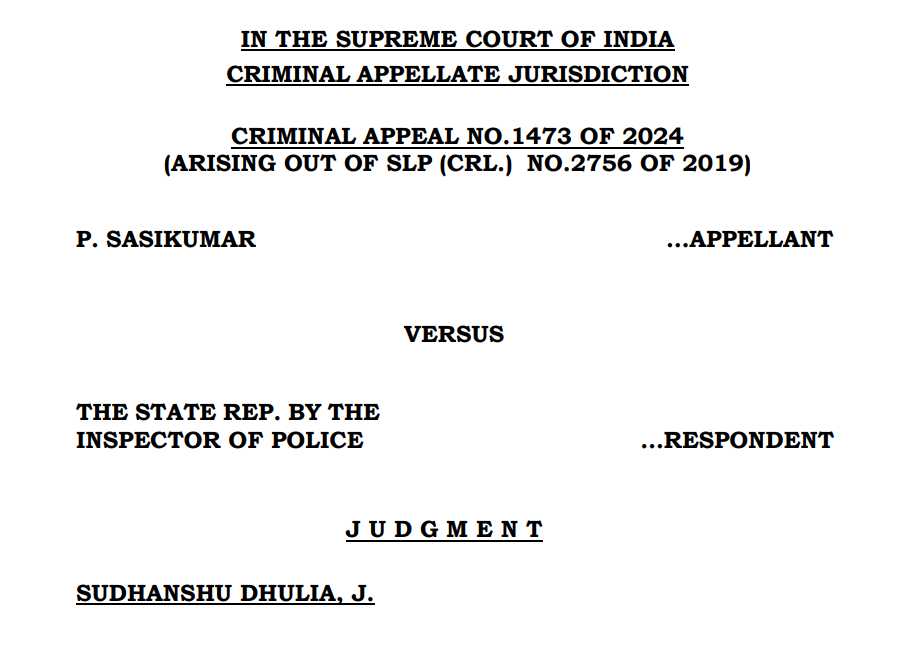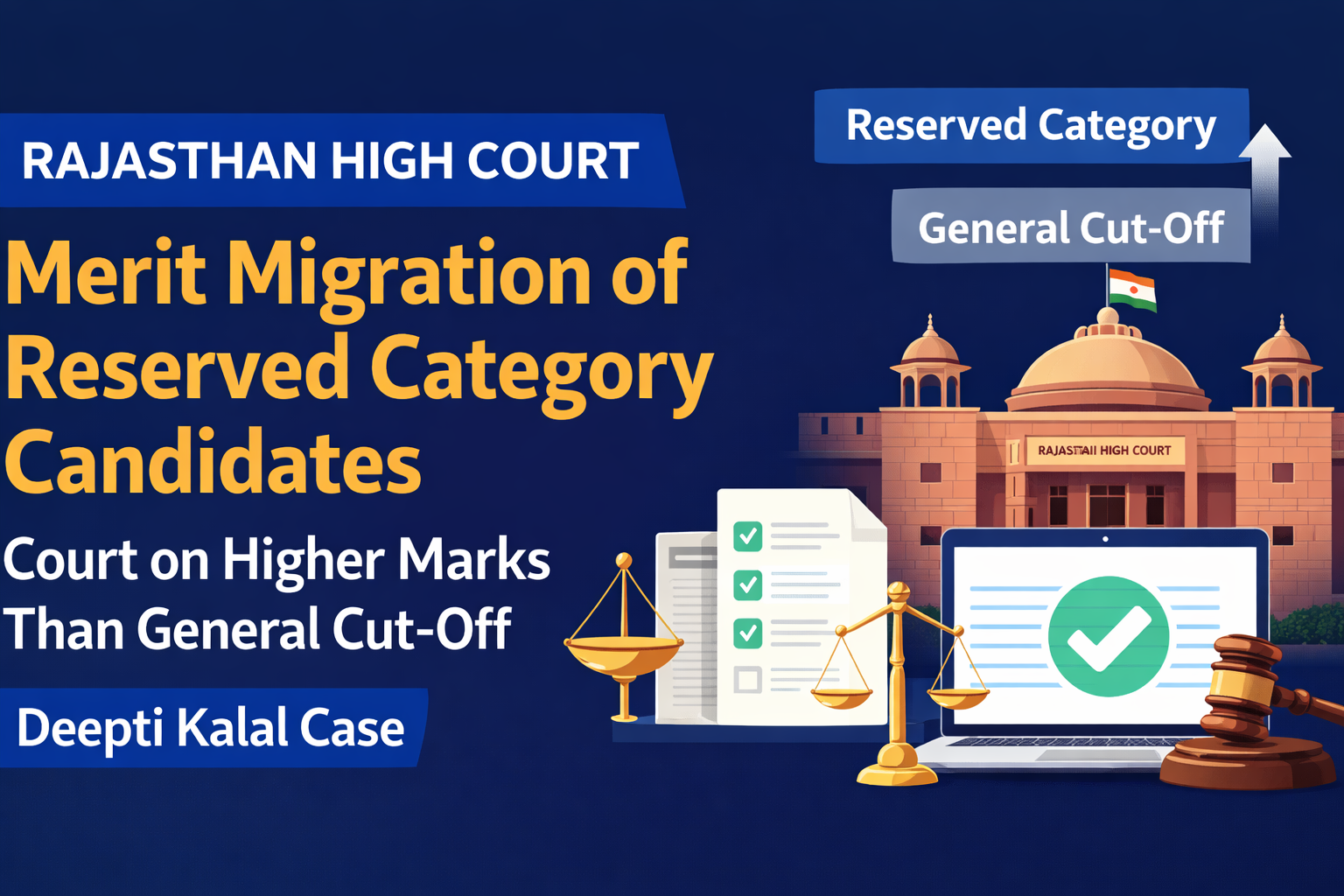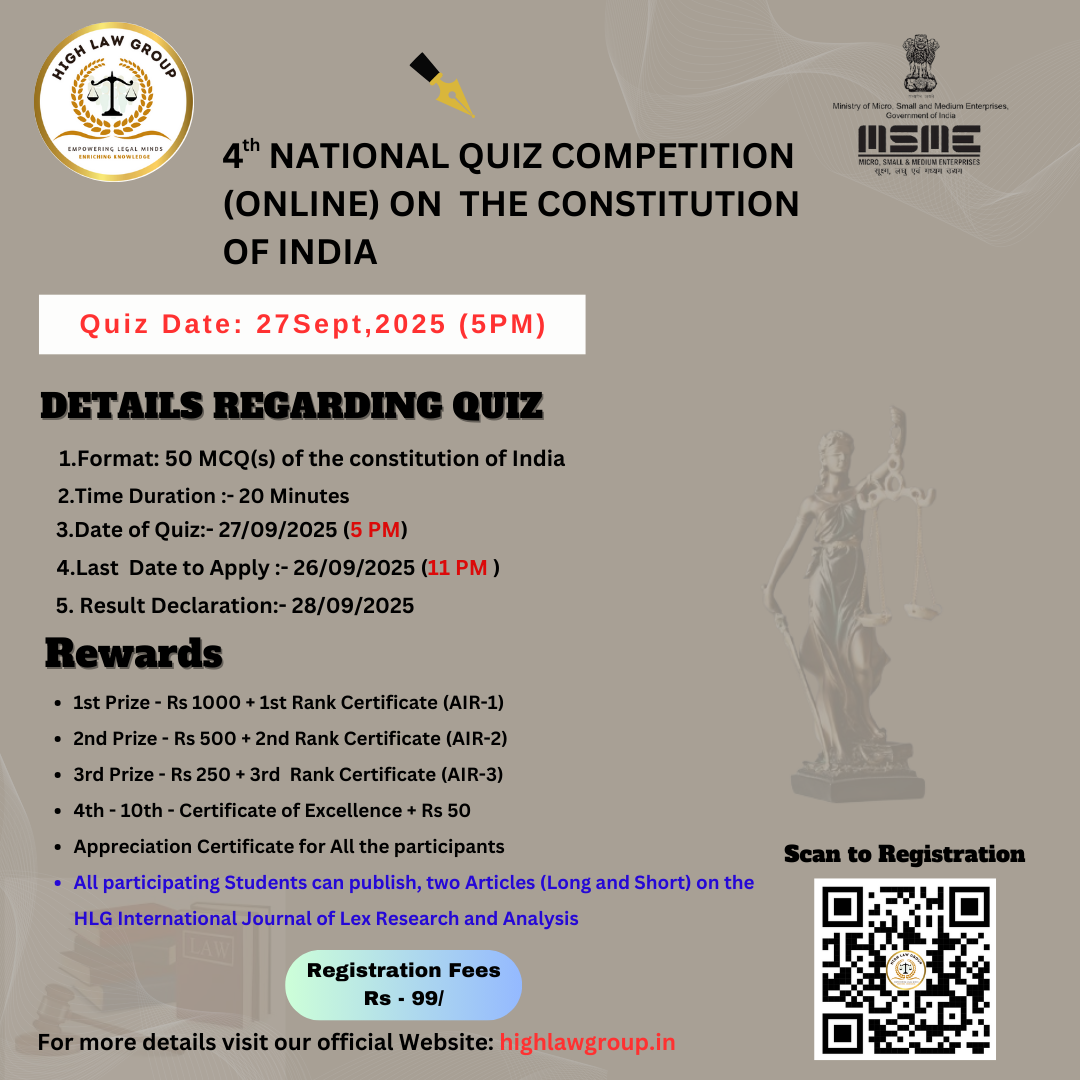P. Sasikumar v. The State Rep. By The Inspector of Police. The case revolves around the heinous murder of a 14-year-old girl inside her home on November 13, 2014. Two individuals were accuse: Yugadhithan (Accused No. 1) and 2nd P. Sasikumar (Accused No. 2, the appellant). The prosecution’s argument relied heavily on circumstantial evidence due to the absence of direct eyewitnesses

Timeline of Events:
November 13, 2014, ~7:15 PM: The victim’s father (PW-1) came home to find his daughter critically injured and bleeding. He noticed a man wearing a helmet descending the stairs.
Around 6:30-6:40 PM: A neighbour (PW-5) saw two men entering the victim’s house; one wore a helmet, and the other wore a green monkey cap.
November 15, 2014: Both accused were arreste. Following their statements, weapons, clothes, and vehicles were recovere.
Identification Issues:
Neither PW-1 nor PW-5 had seen the appellant before the incident.
The appellant was seen wearing a green monkey cap that obscure most of his face.
No Test Identification Parade (TIP) was conducte by the police. The witnesses identified the accused in the hospital while they were in police custody and later in court during the trial.
Trial Court and High Court Decisions:
The Trial Court convicted both accused under various sections of the IPC, including Section 302 (murder).
The High Court upheld the conviction of P. Sasikumar.
The appellant contested his conviction in the Supreme Court, primarily on grounds of doubtful identification.
Court’s Observations
The Supreme Court stressed the importance of a Test Identification Parade (TIP) when the accused is unfamiliar to the witness. The Court noted that without a TIP, in-court identification is unreliable for proving guilt.
The absence of a TIP was a significant flaw in the investigation, casting doubt on the reliability of the in-court identification.
In criminal cases, the prosecution must prove the identity of the accused beyond a reasonable doubt. The prosecution failed to meet this burden due to the lack of a TIP.
The Court distinguished this case from previous rulings, emphasizing that the insufficient corroboration and doubts about the appellant’s identity meant that conviction could not be based on unreliable evidence.
The bench, comprising Justices Sudhanshu Dhulia and Prasanna B Varale, concluded that the doubt regarding the appellant’s identity warranted acquittal, affirming the principle that doubt must benefit the accused.
What is the Test Identification Parade (TIP)?
Purpose and Role:
A Test Identification Parade (TIP) is crucial in establishing the identity of the accused, particularly when the witness does not previously know the accused. This process is under Section 9 of the Indian Evidence Act, 1872, and in Section 7 of the Bharatiy Sakshya Adhiniyam, 2023.
Section 7 of BSA:
This section deals with facts necessary to explain or introduce relevant facts, including establishing the identity of persons involved in a case.
Purpose of TIP:
To verify if a person previously unknown to the witness was involve in the crime.
To provide evidence to support the witness’s testimony in court.
Mode of TIP:
Conducted by a Judicial Magistrate, usually in jail, without police presence to prevent influence.
Witness descriptions, lighting conditions, and other relevant details must be recorde.
The accuse must be kept out of view and mixe with similar-looking individuals.
The Magistrate records the proceedings and issues a certificate after the parade.
Evidentiary Value of TIP:
Substantive evidence is not constitute under TIP, but it is use to corroborate or contradict the witness’s court testimony.
Also read Legal News :- 1 New Telecom Law Telecommunications Act 2023
Case Laws
Ramkrishna v. State of Bombay (1955): The Supreme Court held that police should conduct identification parades during investigations to allow witnesses to identify involved properties or individuals.
George v. State of Kerala (1996): The Supreme Court ruled that the lack of earlier identification in a TIP does not affect the admissibility of the accused’s identification in court.
In the case of Jayan v. State of Kerala (2021), the court ruled that witness testimony, if sufficiently corroborate, should not be dismisse solely due to the absence of a Test Identification Parade (TIP). This principle was pivotal in the case of P. Sasikumar, where the Supreme Court highlighted that the lack of corroborative evidence led to significant doubts regarding the appellant’s identification. Consequently, the court determine that the appellant could not be convicte based on such unreliable identification evidence.






Leave a Reply